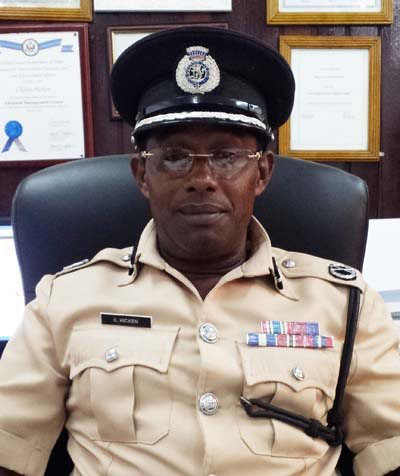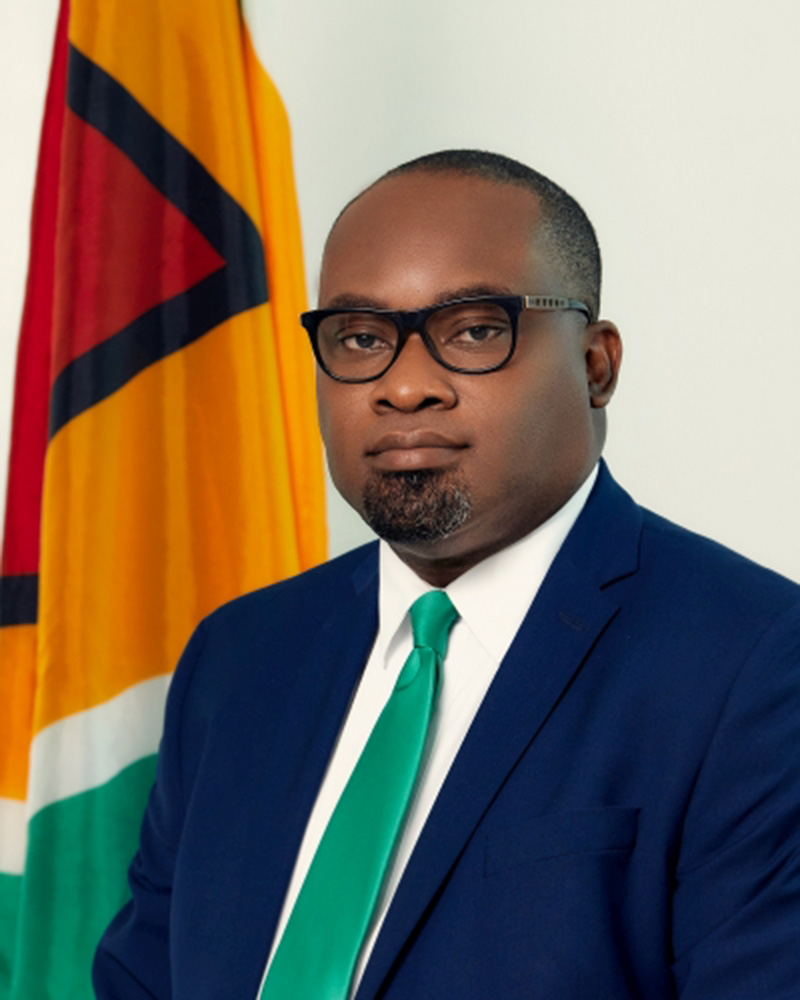Calling the Chief Justice’s ruling upholding the President’s appointment of Clifton Hicken to act as Commissioner of Police “too grave to be left standing,” the APNU+AFC opposition has said it will appeal.
In a press statement issued on Thursday evening, hours after the ruling was delivered, attorney Roysdale Forde SC, who represented Opposition Chief Whip, Christopher Jones, in whose name the challenge was mounted, said they will be moving to have the entire decision set aside.
According to Forde, who is also the APNU+AFC Shadow Attorney General and Minister of Legal Affairs, “the decision must be cause for great concern and it is regrettable that it is to be considered as a judicial green light” to what he said are “unilateral appointments by the Presidency.”

He described the decision as being “strangely and eerily silent on the unilateral removal of the entire Police Service Commission (PSC),” by President Irfaan Ali, but being “preoccupied’ with the impact and purport of the then vacancy in the office of the Leader of the Opposition.
According to Forde, this was done without any consideration that “the President failed to appoint the Police Service Commission for months, substantially contributing to the state of affairs” that led to the action being filed in the Court.
On Thursday, Chief Justice (Ag) Roxane George SC declared Hicken’s appointment by the President to have been lawful, asserting among other things that since there was no Opposition Leader at the time of the appointment, there could have been no consultation between the two political figureheads on making the appointment, as is required by the Constitution.
Describing the Opposition’s challenge as “vexatious,” Justice George made it clear, that the absence of an Opposition Leader has nothing to do with the President and for which he could not be faulted.
Against this background, the Judge said that notwithstanding the provisions of Article 211 of the Constitution, it could not be the intention of the framers that without an Opposition Leader, the smooth functioning of the Guyana Police Force ought to be hindered without a Commissioner of Police.
Justice George noted that where consultation has not materialized due to no fault of the decision-maker, it does not mean that the decision-maker is precluded from acting.
“The Applicant therefore is relying on an impossibility to ground a claim of unconstitutionality,” Justice George asserted.
Forde in his statement to the press has advanced that on the Court’s own analysis, the failure of the President to constitute the PSC “must therefore be an operating reason for the court approved unilateral appointment of Hicken, presumably as much as the absence of a person occupying the office of Leader of the Opposition.”
“It is disappointing that the Court failed to recognize and or consider that state of affairs was created by the unconstitutional removal of the Police Service Commission and the failure by the President to thereafter constitute the said Commission,” the lawyer said.
“Thus, the Court permitted the President to benefit from his own failure to discharge his Constitutional duty to appoint the Police Service Commission,” he added. “It is unfortunate that the decision therefore saw the 30th day of March, 2022 as a static and or singular event and not an ongoing continuum of unconstitutional conduct by the President.”
Forde also complained that the Court in its decision had obliterated the material distinction between an acting appointment which he contends can only be made when there is a Leader of the Opposition and Police Service Commission and an appointment to perform the functions of an office, which can be made whether there is a Leader of the Opposition and or Police Service Commission in place or not.
To this argument, Justice George said in her ruling that the distinction sought to be made by Forde between an acting appointment grounded in meaningful consultation which could not be achieved, as against a performing duties appointment “appears to be splitting hairs and making much ado about nothing.”
She said that the subsections of Article 232 into which Forde tried to place that particular argument allow for the person who has the power to make an appointment to any office to appoint a person to act or perform the functions of that office. She said that “act” and “perform the functions of” are interchangeable and amount to the appointment of a person to fill a position on what should be a temporary or holding situation.
She said that thus, whether appointed to act or to perform the functions would amount to the same thing—a person would be permitted to carry out the duties and responsibilities of the post.
Chief Justice George said that “ultimately, it is the President who must appoint the Commissioner of Police,” before stating that in the context of the Applicant’s case, it could not be that the President should be rendered incapable of appointing someone to act in or perform the functions of the office of Commissioner of Police, so as to ensure that the machinery of administration was not hindered.
She said, too, that in any event the State’s defending affidavit disclosed that the appointment is meant to be temporary until an Opposition Leader was in place and a Police Service Commission appointed to then allow for compliance with Article 211.
Forde was adamant, however, that what he called the “judicial merger” of an appointment “to act” and an appointment to “perform the duties of” “will cause havoc in our Constitutional system and further weaken rather than strengthen the Constitutional edifice of Guyana.”
The lawyer then concluded by saying that the Court proceeded to determine that the President could have acted in the manner he did as he was conferred with authority under Article 111 of the Constitution. To this he said, “Regrettably,” the issue was not raised in any of the submissions laid before the court nor was he called upon or afforded the opportunity to address that issue.
Justice George ruled that the absence of a Leader of the Opposition to meaningfully consult with, led to the necessity for the President to make the appointment, which she described as being “reasonable…in his own deliberate judgment.”
She said that he was so entitled pursuant to Article 111 of the Constitution to address the “unexpected circumstances” by which he had been confronted and to also address the administrative deficiency that had arisen.
The Judge reasoned that there could have been a negative impact on national security if the highest office of such an important law enforcement agency was left vacant, given what at March 30, 2022, when Hicken was appointed, was still an uncertainty of when an Opposition Leader would have been appointed.
The Opposition’s fixed date application (FDA) challenging Hicken’s appointment was filed back in May by Jones, whose main contention was that the appointment was unreasonable and unlawful and that the appointment violated Article 211.




